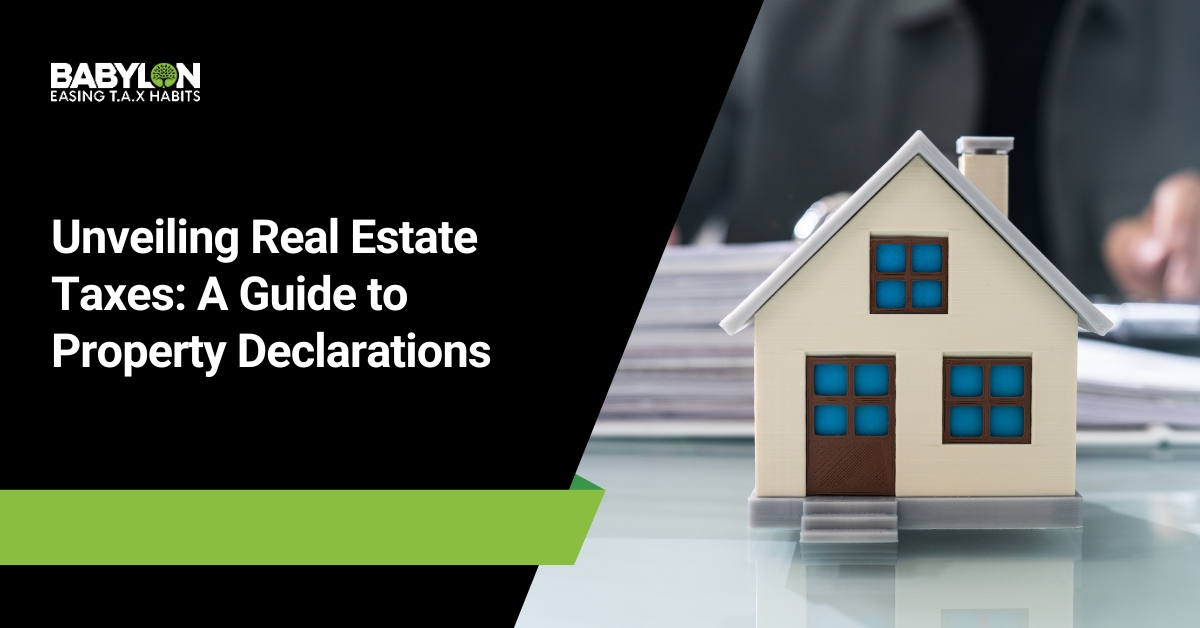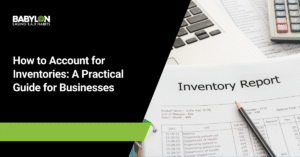Finally owning a property can be a dream come true, but remember that it comes with responsibilities, like paying real property taxes.
Understanding these taxes is crucial because failure to pay can result in penalties, interest, and even the risk of losing your property.
In this guide, we unravel the complexities of real estate taxes, particularly property declarations. Let’s simplify this process together and empower you to navigate your tax obligations confidently.
What are Real Estate Taxes?
Real property tax, also known as amilyar, is an annual obligation to your local government for property ownership in the Philippines. Property owners can choose to pay real property tax annually or quarterly. If paid annually, it’s due by January 31st each year. If taxpayers are unable to pay the full amount by then, they can spread payments over four installments: March 31st, June 30th, September 30th, and December 31st.
Failure to pay on time incurs a penalty of 2% interest per month on the unpaid amount, whether you choose to pay the real property tax annually or in quarterly installments.
This tax funds public services and applies to land, buildings, improvements, and machinery. It’s vital to meet these obligations to avoid penalties and support community funding.
Types of Real Estate Taxes
Here are various taxes associated with property ownership:
Purchase Tax
This tax is applied when purchasing residential properties like condominiums or houses, usually 6% of the property’s selling price. Buyers handle the payment, which is calculated by multiplying the sales tax percentage by the property’s retail price. For example, if a condominium is sold for PHP 1,000,000, the purchase tax would amount to PHP 60,000 (6% of PHP 1,000,000).
Capital Gains Tax
Capital gains tax is for selling non-residential properties, like homes or investments, at a rate of 6% based on the profit. Sellers pay this tax, which is calculated by multiplying the property’s higher value by 6%. For instance, if a property’s value increased by PHP 500,000 upon sale, the capital gains tax would amount to PHP 30,000 (6% of PHP 500,000).
Rental Income Tax
This applies to property owners renting residential or commercial properties, typically 18% or 28% based on income level. Landlords calculate it by deducting expenses from rental income and applying the tax rate. For example, if you earned PHP 50,000 in rental income and your expenses amounted to PHP 10,000, the net rental income will be PHP 40,000. This is then multiplied, say to an assumed 18% tax rate. So the rental income tax would be PHP 7,200.
Maintenance Tax
Local governments collect this tax to maintain public infrastructure based on the property’s value. Rates vary, with Metro Manila at 2% for residential and 3% for commercial properties. For instance, if you own a residential property in Metro Manila valued at PHP 2,000,000, the annual real property tax would be PHP 40,000 (2% of PHP 2,000,000).
Ad Valorem Tax
The term “Ad Valorem” is a Latin word that means “according to value” in English. This tax is based on the property’s assessed value, ensuring fairness. Property owners pay for this, and it’s calculated by multiplying the number of units, the selling price per unit, and the tax rate. For example, if you own a commercial building with an assessed value of PHP 500,000 and the tax rate is 2%, the amount of the ad valorem tax would be PHP 10,000.
Importance of Property Declaration
Here are reasons why property declarations are essential:
Legal Compliance
Property declarations ensure compliance with local regulations and tax laws. Accurate declarations help property owners avoid legal issues and penalties associated with incorrect information.
Tax Assessment
Property declarations help determine the value of properties for tax assessment purposes. Properly declared properties can benefit from fair and accurate tax assessments, leading to equitable taxation.
Resource Allocation
Governments utilize property declarations to allocate resources for public services and infrastructure development. Accurate declarations help ensure that communities receive adequate funding for essential services like education, healthcare, and transportation.
4 Steps for Property Declaration
Here are the four steps to complete your property declaration process:
- Submit Required Documents
Present your Certificate Authorizing Registration, a government-issued document required for transactions like real estate purchases or vehicle transfers, confirming that all legal requirements have been met. You should also show your BIR Tax Clearance Certificate, which verifies that you have no outstanding tax liabilities with the Bureau of Internal Revenue. These will be assessed, and the Municipal Clerk will verify property ownership.
- Processing Application
Upon successful assessment, your application for a tax declaration will be processed. This includes system validation and property inspection. Be prepared to pay any required fees during this stage.
- Appraiser Inspection and Approval
The property will undergo an inspection, and a report will be generated by the appraiser. After approval, the data will be encoded into the LGU’s system.
- Issuance of Tax Declaration
The tax declaration will be printed and issued to you, confirming your property’s legal status and tax obligations. Make sure to keep this document safe for future reference and compliance.
What are the Requirements for Paying Real Estate Tax?
Here’s a list of requirements you need to prepare:
Valid ID
When paying real estate tax, it’s essential to present a valid ID, such as a driver’s license or passport. This helps confirm your identity as a taxpayer and prevents unauthorized transactions.
Previous Official Receipt of Tax Payment
Property owners must show the previous tax payment receipt when paying real estate tax. This proves past payments and ensures the current payment is accurate.
Property Title
You must provide the original copy of the property title for real estate tax payment. It confirms ownership and helps assess the tax amount correctly.
Tax Declaration Number
Property owners need to provide the tax declaration number for tax payment. This number tracks payments and assessments, ensuring the correct application of taxes to the property. You can request it from the Municipal Assessor’s Office.
How Do You Compute the Real Property Tax?
To compute the real property tax, you have to first determine your property’s assessed value set by the local government. The relevant tax rate will then be applied depending on your property’s location: 1% for province properties and 2% for Metro Manila properties. Multiply the assessed value by the tax rate to find your tax amount. This calculation is specified in the Local Government Code of 1991.
For example, a property with an assessed value of PHP 1,000,000 in Metro Manila incurs a PHP 20,000 tax, while in the province, it’s PHP 10,000.
In addition, there is a 1% Special Education Fund (SEF) tax that is imposed on top of the 2% property tax.
How Do You Pay for Real Property Tax?
There are various ways to pay real property tax in cities in Metro Manila. You can do it online or offline; it depends on your city.
Here are the steps you can follow when you need to pay your RPT available in selected Metro Manila cities:
Paying Real Property Tax in Manila
If you live in Manila, you can pay your tax either online or onsite at the City Hall, which is open Mondays to Fridays from 8:00 am to 5:00 pm.
Online Payment
- Download the Go Manila app and sign up for an account.
- Go to the E-Government section and select Real Property Tax (RPTAX).
- Input the information in the provided fields.
- Review your submission and click “Pay Now” to proceed.
- Choose your preferred payment terms and options.
- Wait for confirmation via SMS.
Onsite Payment
- Gather previous tax receipts or bring your property title and tax declaration number.
- Visit the LGU’s Offices and head to the Treasurer’s Office or designated payment center.
- Go to the Assessor Office or Taxpayer’s Lounge for assessment, then pay at the billing section.
- Ensure you receive a receipt after payment for proof of transaction.
Paying Real Property Tax in Makati
If you’re residing in Makati, you can pay your real property taxes either online or onsite:
Online Payment
- Visit makationlinepayments.com and select “real property tax.”
- Enter your tax declaration number and proceed to pay using GCash or online banking.
- Send your payment to the city government of Makati using the provided account number.
Onsite Payment
- Visit the city hall or Makatizen Hub at SM Makati.
- Bring your approved billing assessment and proceed to pay during office hours, Mondays to Fridays, from 10:00 am to 5:00 pm.
Paying Real Property Tax in Quezon City
You can also pay your real property taxes online or onsite if you’re from Quezon City.
Online Payment
- Visit https://qceservices.quezoncity.gov.ph and create an account.
- Click on “RPT Payment” and input your Tax Declaration Number.
- Fill in the required fields and receive a reference number for online payment.
- Email your proof of payment and the reference number to [email protected].
Onsite Payment
- Visit the City Treasurer’s Office at Quezon City Hall or designated branches.
- Present your official receipt from the previous year for assessment.
- After assessment, proceed to pay your real property tax during office hours.
- Delinquent taxpayers must proceed to the Delinquent Taxpayer Section at Quezon City Hall.
Paying Real Property Tax in Pasig
If you’re a Pasigueño, here’s how you can pay for your taxes:
Online Payment
- Go to https://payments.pasigcity.gov.ph and create an account.
- Register your property by providing the latest Official Receipt and registration date.
- Get your property assessed online to determine the payment amount.
- Proceed with online payment through the website.
Onsite Payment
- Visit Pasig City Hall, Manggahan Annex, Ugong Annex, or San Antonio Annex during weekdays.
- Bring necessary documents for assessment and payment.
- Pay your real property tax at the designated office during office hours.
Paying Real Property Tax in Taguig
If you’re residing in Taguig City, here’s how to pay for your taxes on-site:
- Visit the SM Aura satellite office or the Convention Center at the new City Hall during office hours.
- If you don’t have your latest tax declaration or real property tax receipt, ask for a duplicate in the City Assessor window.
- Provide your tax declaration or real property tax receipt to the cashier when settling your payment.
- Pay using cash, credit/debit card, GCash, Maya, or manager/cashier’s check payable to Taguig City Treasurer.
Exemptions from Real Property Tax
Here’s a list of real property tax exemptions:
Government-Owned Real Property
Public schools, government buildings, and military installations are exempt from real property tax. This exemption applies to land and structures used for public purposes.
Educational, Charitable, and Religious Institutions
Schools, orphanages, and churches are exempt from real property tax. This exemption encourages the provision of essential services and supports the activities of these institutions.
Specific Equipment and Machinery
Machinery and equipment used for power generation or water distribution, such as turbines, generators, and water pumps, are exempt from real property tax. This aims to support infrastructure development and ensure the availability of utilities.
Machinery for Environmental Protection
Air purifiers, waste treatment facilities, and recycling plants are exempt from real property tax. This exemption incentivizes investment in technologies that promote environmental sustainability and protect public health.
Duly Registered Cooperative-Owned Real Property
Real property owned by duly registered cooperatives, such as cooperative housing projects or agricultural cooperatives, is exempt from real property tax. This supports cooperative enterprises and encourages community development initiatives.
Simplify Property Tax Obligations with Babylon2k
Navigating real estate taxes and property declarations can be complex, but understanding these processes is essential for property owners in the Philippines. Failing to fulfill your tax duties can result in penalties and legal consequences.
At Babylon2k, we specialize in tax services tailored to businesses, including understanding tax declaration of real property. Whether you’re dealing with real property tax or other tax-related matters, our expert team is here to assist you. Request your quote today to learn how we can assist you.
Message our AI chatbot today for expert guidance. You can also contact us at [email protected] or through Viber/WhatsApp at +63-927-945-3382.






